
OR
Opinion
With Prasain's Campaign, Nepal's Political Landscape Heats Up
Published On: November 29, 2023 08:30 AM NPT By: Loknath Sangroula
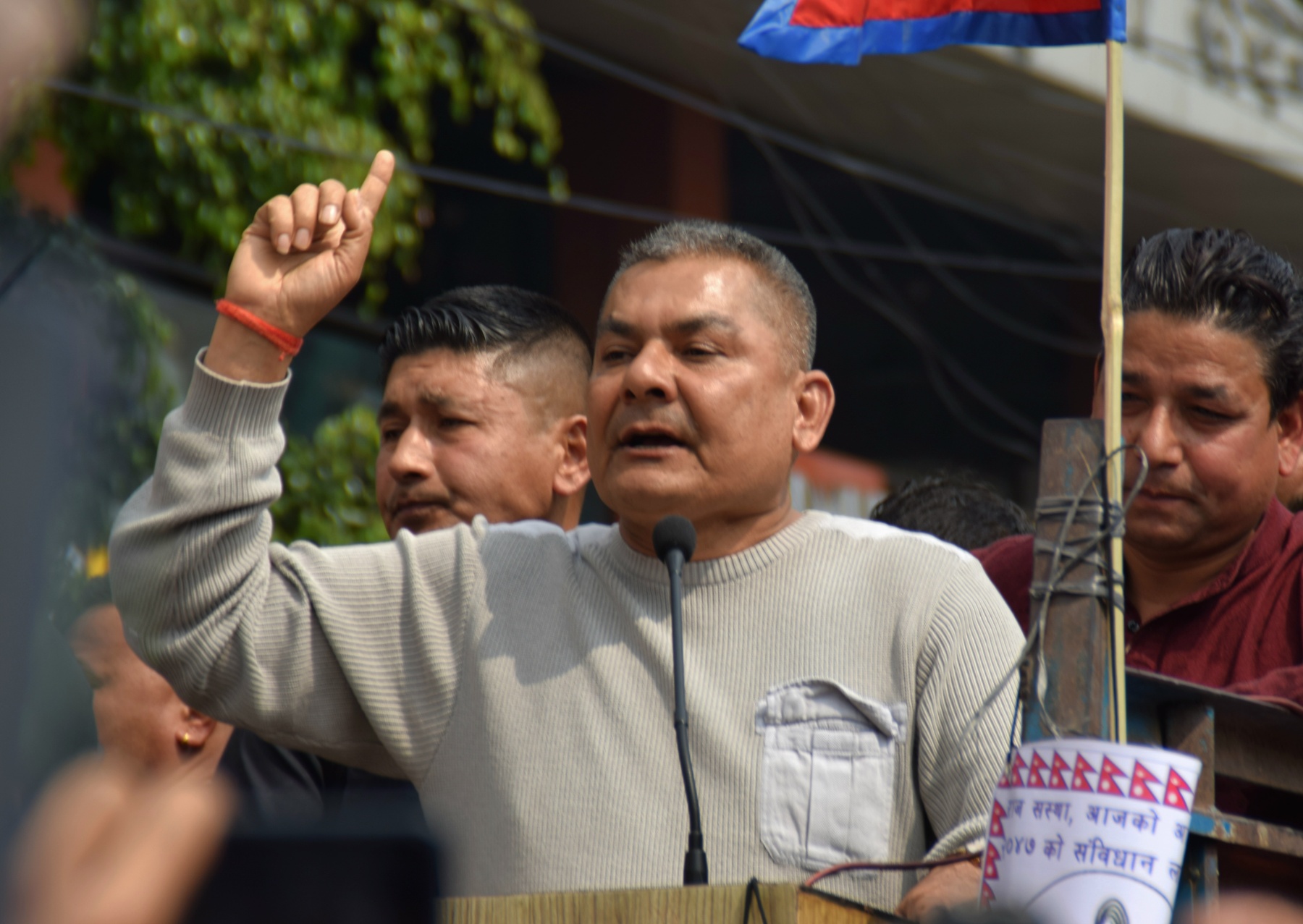
In his trademark rustic style, Prasain has struck a chord with the suffering masses, bringing these issues to the forefront―a matter that has become a persistent thorn in the government's throat.
This so-called secular republic hasn't exactly steered the country toward stability and prosperity; the transformation is far from being a success story. In the past 15 years, the country has seen the rise and fall of eleven governments, with six prime ministers barely making it past the one-year mark in office.
The Mega-Campaign for the Protection of Nation, Nationality, Religion, Culture and Citizens, spearheaded by medical entrepreneur Durga Prasain, orchestrated a protest rally on Mangsir 7 (Nov 23), strategically coinciding with the signing of the 'infamous' 12-point agreement between the seven political parties and the Communist Party of Nepal (Maoist) in New Delhi 18 years ago. Once in close proximity to current Prime Minister Pushpa Kamal Dahal and former Prime Minister KP Sharma Oli, Prasain has now staunchly embraced an anti-establishment stance. The rally braved tear gas and water cannons. Such scenes generally signify an overwhelming surge of passion, typically fueled by the pursuit of democracy and human rights. However, the current scenario bears a distinctive mark. While pro-monarchy protests have been sporadically surfacing in Nepal for some time, they stand out for two critical reasons this time―their unparalleled scale and the government's draconian response, setting this apart from the previous instances.
Prasain, a figure embroiled in controversy as a medical entrepreneur, has been spearheading a rallying cry under this Mega-Campaign. The campaign, launched about ten months ago at the Indo-Nepal border Mechi bridge in the presence of former king Gyanendra Shah and other members of the royalty, boldly proclaims its mission of "restoring the monarchy and the Hindu Kingdom." The police have accused Prasain of not only agitating an otherwise peaceful society but also inciting the crowd to engage in violent actions. Earlier in the day, tensions escalated when members of the UML's youth wing clashed briefly with Prasain's supporters at Balkhu, a designated area for the latter.
In a surprising turn of events, the district administration offices of Kathmandu and Lalitpur have imposed stringent prohibitory orders, forbidding rallies in specified areas of these districts. Kathmandu's order extends for one month, while that of Lalitpur lasts for six months, both effective from November 21, citing reasons for the purported necessity to maintain social harmony, peace and tranquility in the districts. The government seems to be not just concerned but spooked, exhibiting an excessive reaction to Prasain's challenge. There are even suspicions that the TikTok ban may be linked to this event. Earlier this month, the government had implemented a ban on TikTok, and many suspect the ban was a deliberate move to suppress dissent.
Nepal's current political parties and their leaders are not winning the popularity contest. They are seemingly grappling with a significant lack of popularity. In 2005, Gyanendra Shah ruthlessly axed the government, seizing absolute control of the country, and that turned out to be the decisive blow in sealing the monarchy's fate. The king stepped down in 2006 after a sea of protestors rallied against the crown. In 2008, the country declared itself a secular republic, opening the door for political parties to wrestle the nation from the clutches of turmoil. Today, Gyanendra Shah exists as a mere private citizen―no pomp and show, no royal palace, no vestiges of royalty whatsoever.
But this so-called secular republic hasn't exactly steered the country toward stability and prosperity; the transformation is far from being a success story. In the past 15 years, the country has seen the rise and fall of eleven governments, with six prime ministers barely making it past the one-year mark in office. All this instability comes with consequences, for sure. Check this out―Nepal's average inflation hit a whopping 7.7 percent this year, and the unemployment rate for the 15-29 age group is a staggering 19 percent. Last year alone, a jaw-dropping 750,000 young people packed up and left, roughly 2000 every single day. They are not jet-setting for leisure; they are slogging under the blazing sun in the Middle East, working hard, sweating harder. It's not just migration; it's a full-on exodus. As revealed by government data from last year, it's staggering to find that students jetted off abroad with foreign currency worth NPR 100 billion within just one year. And, sadly, the disheartening truth is that these students harbor no intention of returning to contribute to their homeland upon completing their studies―a most worrisome sign.
Our capital-to-output ratio soars above that of other South Asian nations; our demographic dividend, the youth aged 15-59 expected to stay put for the next two and a half decades, remains largely untapped; a substantial 20 percent of our population resides abroad, negatively affecting consumption and the process of industrialization; as young force toils abroad, contributing their blood, tears and sweat, the nation grapples with a sense of agentless development; a staggering 70 percent of our economy operates in the shadows; many microfinance borrowers have died by suicide due to loan defaults; and, sadly, the most fertile land lies fallow, deprived of the required manpower to bring it to life. The list goes on and on, and in his trademark rustic style, Prasain has struck a chord with the suffering masses, bringing these issues to the forefront―a matter that has become a persistent thorn in the government's throat.
It seems the writing on the wall is pretty clear―there is a simmering anger against these parties and politicians, and figures like Durga Prasain are skillfully riding that wave, capitalizing on the simmering discontent. The politicians, with their brazen actions laid bare for all to see, have metamorphosed into a cabal of looters, killers and thugs, their antics glaringly exposed to the public eye. With Prasain resolutely vowing to persist in his protests despite the stern warnings from the administration, an overwhelming ten thousand security personnel were strategically deployed across the Kathmandu valley to quash any potential unrest. On Nov 24, a police contingent descended upon Prasain's residence at Thimi in Bhaktapur, effectively barricading him from stepping out throughout the entire day―a move which Prasain describes as 'house arrest'.
Prasain's pitch cuts straight to the chase―a revival of the monarchy and a push for a Hindu state, paired with a no-nonsense stance on slashing interest rates, throwing in loan waivers for farmers, a significant chunk of whom happen to be women dealing with microfinance companies and cooperatives. Are there any odds of these protests doing a 180 in terms of restoring the monarchy? The outlook probably seems dim, at least for the moment. Nevertheless, it serves as a resounding wake-up call to the political bigwigs. However, the royalists might just spice things up, injecting a dose of dynamism into the political landscape, come the 2027 elections. These political leaders, once incarcerated for decades, wielding guns in the name of liberating suffering humanity and embracing a sense of martyrdom, have proven hollow, with no plans to draw up the contours of development. The nation is gradually diminishing into a mere geographical outline, devoid of the vibrant energy and fervor that once pulsed within its youths. They have scuttled our sacred trust we have placed in them, betraying our expectations.
Police responded with a heavy hand, reportedly resorting to severe measures. They unleashed indiscriminate arrests of suspected protesters, even nabbing individuals on the way to their office. Shockingly, even those clad in Daura-Suruwal (traditional Nepali dress) with coats were not spared, and ordinary folks passing through the Tinkune area found themselves detained merely on suspicion of being protesters. It seems that the egregious situation reflects the zenith of insanity, a manifestation of sheer madness that has engulfed the state machinery. If these signs are any indication, the government is gripped by a palpable sense of panic and has unleashed a draconian response, prepared to quell the movement with an iron-fisted approach. Rather than engaging in retrospection and a nuanced analysis of where they have faltered in addressing the demands articulated by the Prasain's Mega-Campaign, the government clearly seems to have opted for a path of harassment, which stands in stark contradiction to the right of citizens to peacefully express dissent.
These are the very same political parties that navigated through tumultuous phases while battling against the autocratic Panchayat regime. However, now comfortably ensconced in the corridors of power, they seem to be resorting to the same heavy-handed tactics they once confronted with unyielding spirit and unwavering determination. The audacity of these political players to employ the draconian measures they once faced, flexing their authoritarian muscles, feels like a contradiction of their own history; a bit rich coming from them. People aspire to participate in initiatives aimed at drawing a future trajectory where their voice is not only heard but also respected.
However, a question looms large: Why did former king Gyanendra Shah opt to travel to Jhapa to unveil a newly constructed statue of late king Prithvi Narayan Shah on the premises of a hotel management college in Birtamod, instead of standing in solidarity with the Prasain-led mega-campaign launched in his own presence about ten months ago? This choice adds an intriguing layer to the entire narrative, revealing a palpable disconnect between Prasain and former king Gyanendra Shah. This disconnect gains even more significance given the pivotal role of RPP chief Rajendra Lingden, a staunch pro-monarchy leader, in orchestrating Gyanendra Shah's participation in the event. This is particularly because Prasain and Lingden are at loggerheads, with the latter hurling all sorts of names against the former. Or, is the king attempting to extend his support to both factions? The unfolding events will likely provide more clarity in the days to come.
Now, the nation appears to be simmering with discontent, the tangible sense of frustration echoing so loudly. The people feel a profound sense of betrayal from political parties of every stripe and shade. Their aspirations for genuine change, ushering in a prosperity-filled life, have been ruthlessly shattered. So, a word to the wise, leaders – elevate yourselves to uplift the common masses before the sands in the hourglass run out or the window of opportunity closes. Time, an unstoppable force, will bring you tumbling down when your moment arrives, and the fall can be swift and unforgiving. Beware, for history isn't penned by your generation; it's the generation that follows that holds the pen.
You May Like This
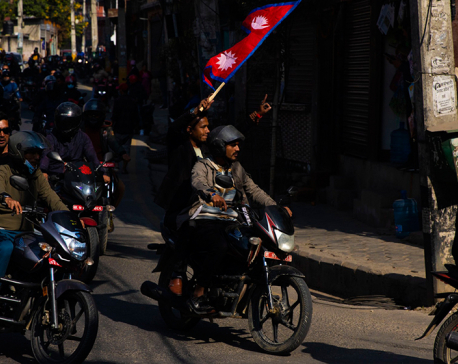
4th day of demonstration of Prasai-led group: "Everyone is tired, only a motorcycle rally scheduled for today"
KATHMANDU, Nov 26: Durga Prasai, a medical entrepreneur advocating for a change in the political system, will limit today's protest... Read More...
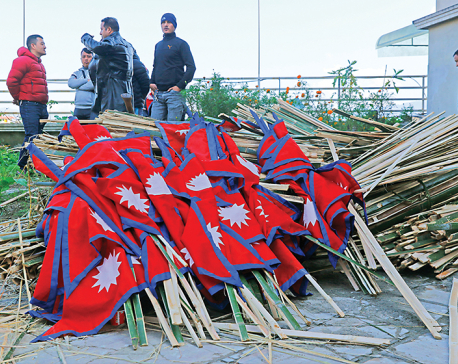
Hold demonstrations peacefully
The air in Kathmandu is filled with tension and anticipation, not for a celebration or a momentous occasion, but rather... Read More...
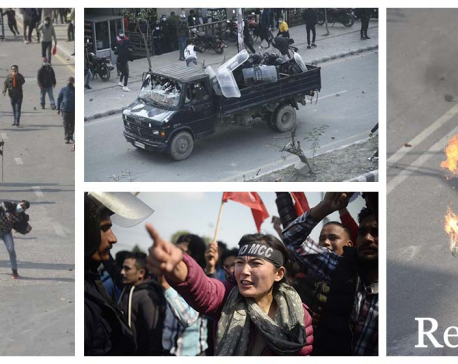
Anti-MCC protestors clash with police (With Photos)
KATHMANDU, Feb 16: The Kathmandu Metropolitan City witnessed another tense day on Wednesday after agitators protesting against the ratification of... Read More...






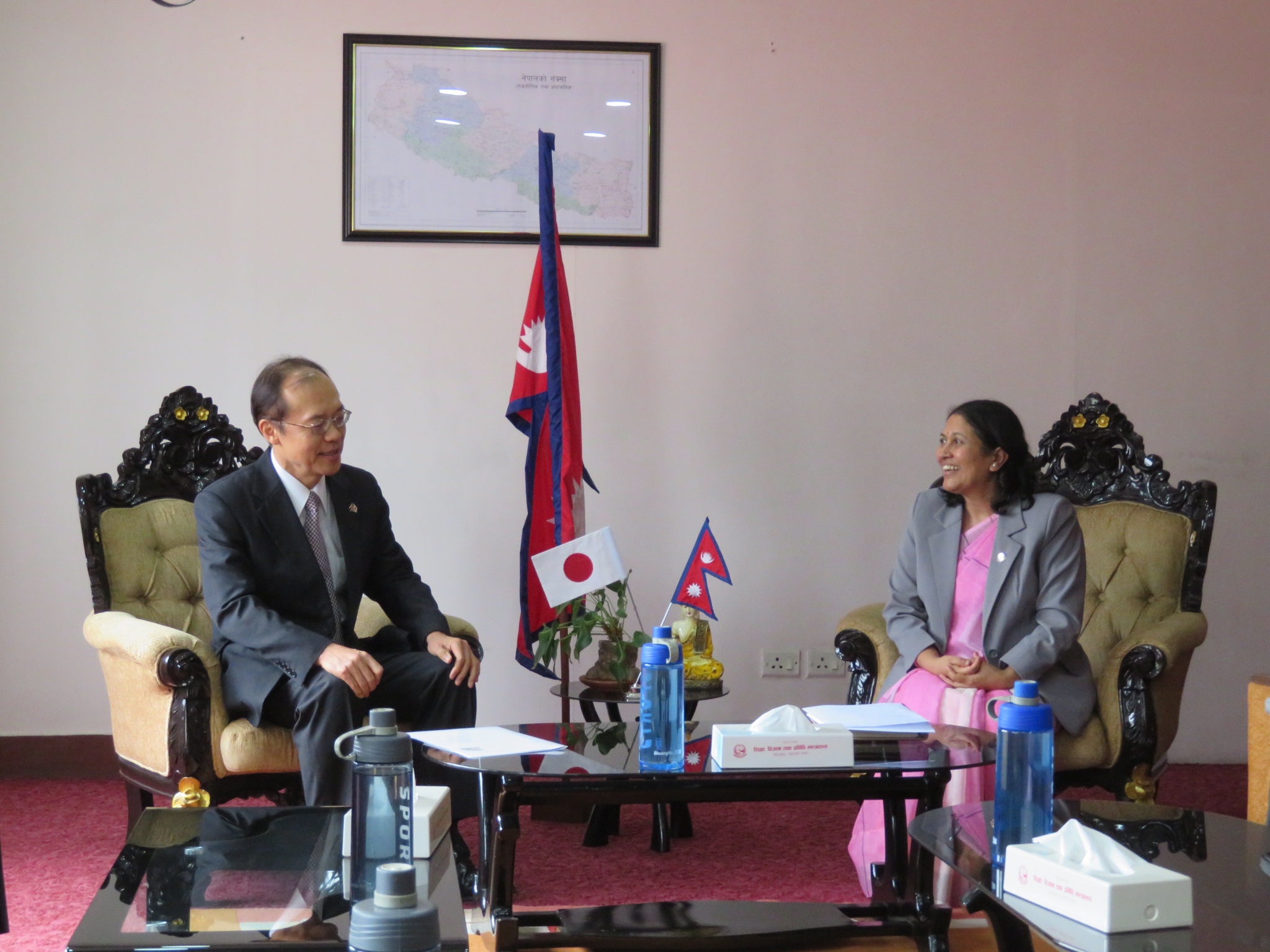




Just In
- Nepal at high risk of Chandipura virus
- Japanese envoy calls on Minister Bhattarai, discusses further enhancing exchange through education between Japan and Nepal
- Heavy rainfall likely in Bagmati and Sudurpaschim provinces
- Bangladesh protest leaders taken from hospital by police
- Challenges Confronting the New Coalition
- NRB introduces cautiously flexible measures to address ongoing slowdown in various economic sectors
- Forced Covid-19 cremations: is it too late for redemption?
- NRB to provide collateral-free loans to foreign employment seekers



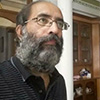




Leave A Comment